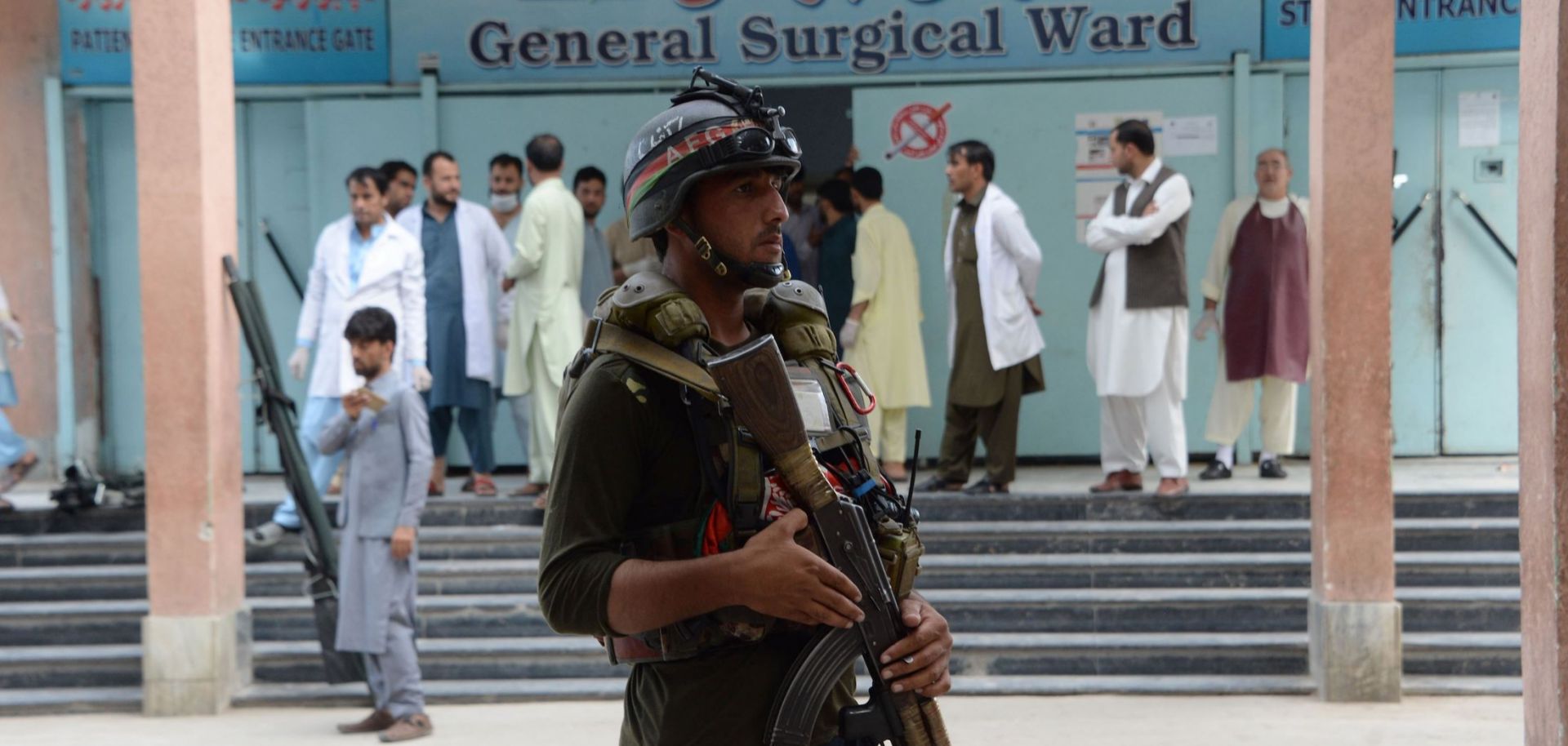ASSESSMENTS
For Afghanistan, Parliamentary Elections Are Another Step on the Rocky Road to Democracy
Oct 17, 2018 | 10:00 GMT

An Afghan police officer stands guard outside a hospital after a suicide bomber attacked a political rally in Jalalabad, in Afghanistan's Nangarhar province, on Oct. 2, 2018.
(NOORULLAH SHIRZADA/AFP/Getty Images)
Highlights
- The disagreements arising from this year's parliamentary elections will complicate Afghanistan's presidential election in 2019 and hinder the deepening of democracy in the country.
- The Taliban will reject the elections and their outcomes as part of their strategy of painting the government as a foreign-backed entity.
- The halting progress on electoral reforms in the short term means the "ethnicization" of Afghan politics will endure and lead to the same kind of gridlock characterizing the National Unity Government.
- Success in Afghan elections will be incremental and can best be gauged by a decline in fraud from one election to the next.
Subscribe Now
SubscribeAlready have an account?
